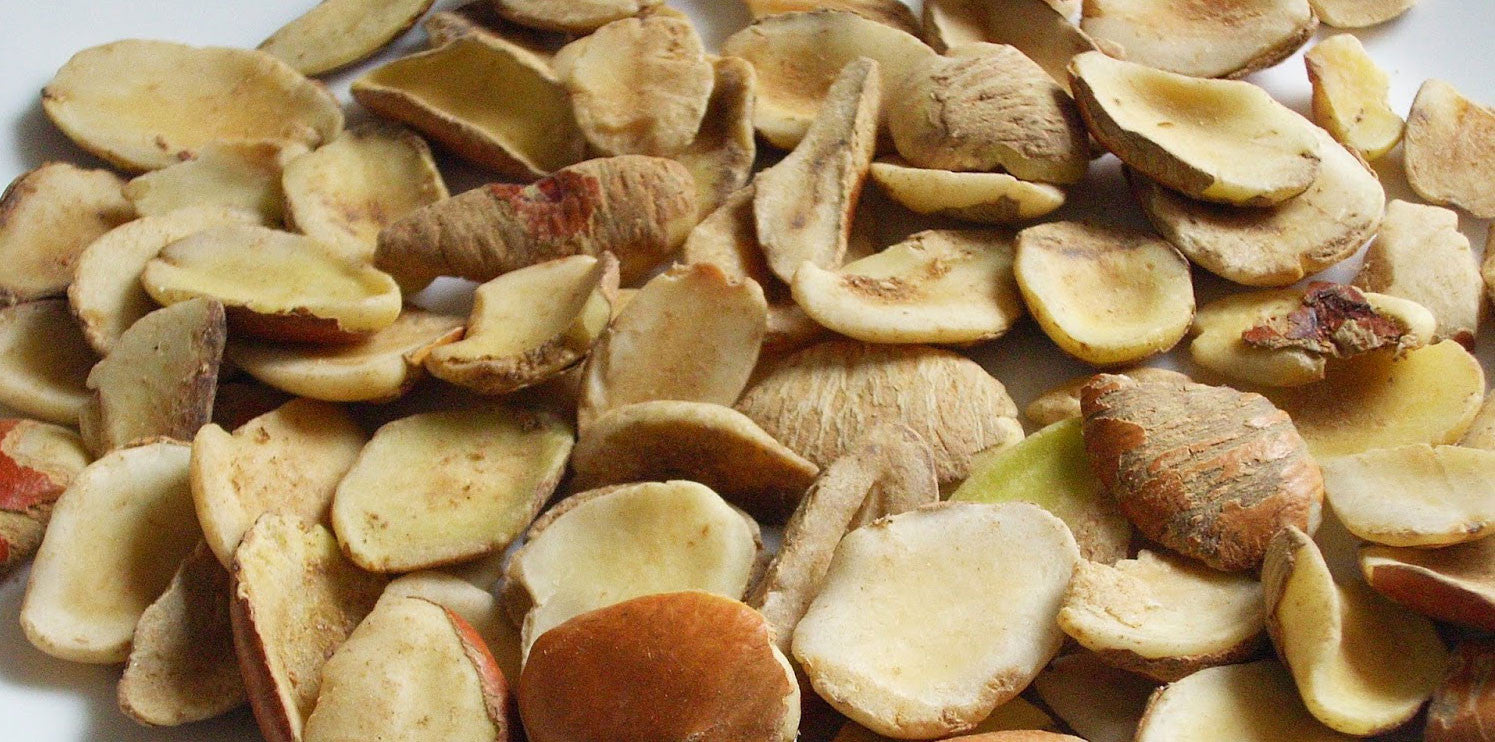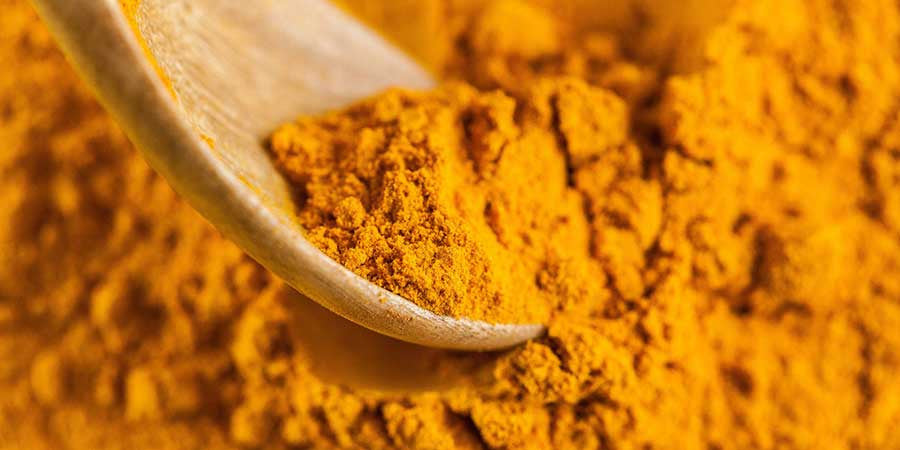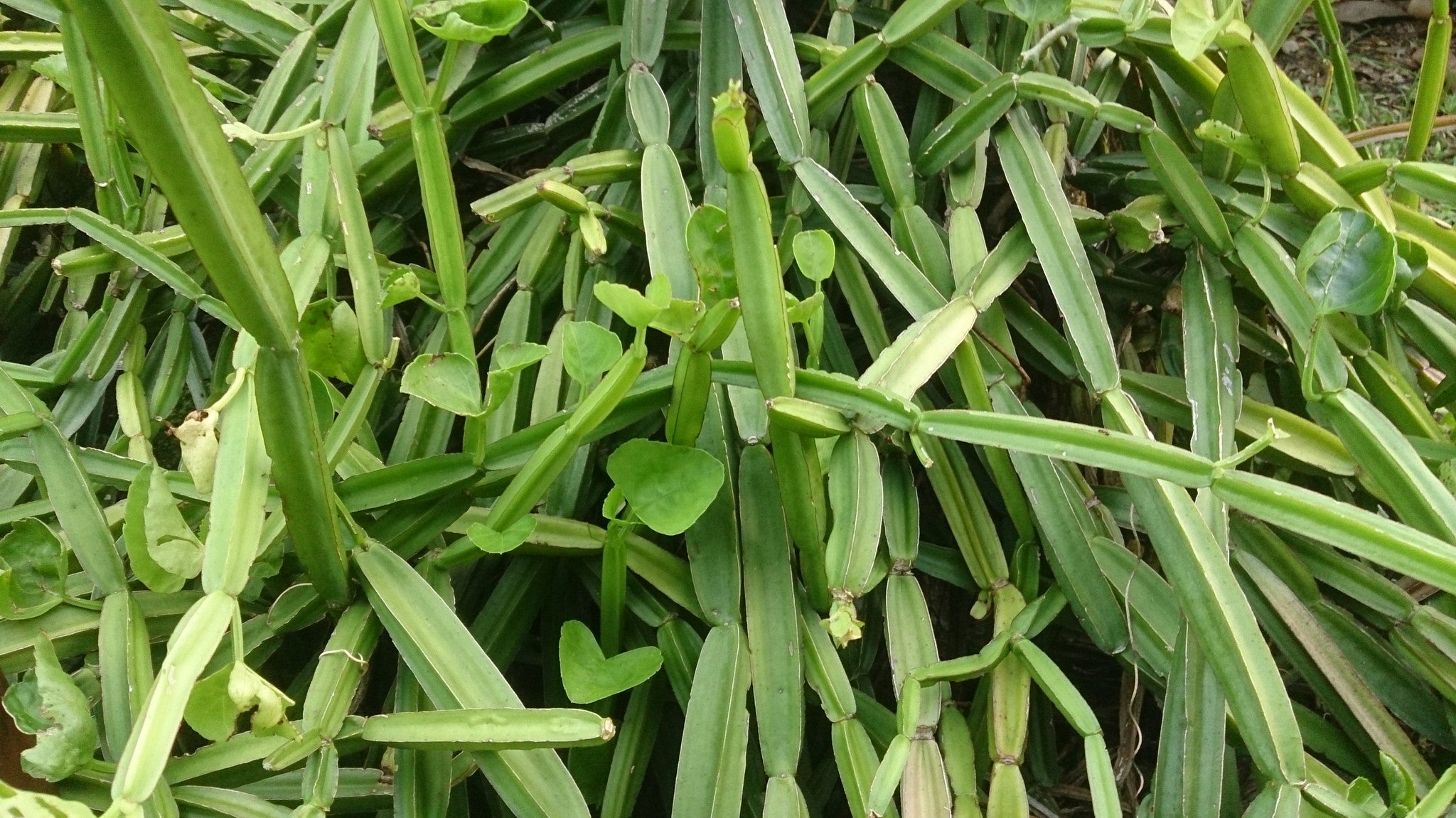Irvingia Gabonensis (African Mango)
Irvingia Gabonesis, also know as African Mango, is a West Aftrican tree whose fruit is sweet, edible, and similar to a mango. Prized for its many uses, the bark, pulp, and seeds of the fruit are often used for medicinal purposes. Irvingia gabonensis is also known as Ogbono, dika, sweet bush mango, odika, iba-tree, chocolatier, African mango, dika nut, duiker nut, manguier sauvage, wild mango, and dika bread tree.
Benefits of African Mango/Irvingia Gabonesis
Extract from the seeds of the fruit of Irvingia Gabonesis is proving to be useful in the fight against unwanted weight gain. It also helps promote healthy cholesterol, adiponectin, and leptin levels.
According to one study involving 40 obese subjects, those who took 150mg of this African mango seed extract twice a day showed "significant improvements" in their body weight, body fat, and waist size. The treated patients also had a significant decrease of total cholesterol, LDL-cholesterol, triglycerides, an increase of HDL-cholesterol, improved levels of blood glucose, C-reactive protein, adiponectin, and leptin levels – all without changing their diet or exercise routine. On the other hand, the placebo group did not manifest any changes in blood lipid components. Additional studies have shown similar results, with subjects losing weight (about 8-10 pounds) without making other lifestyle changes.
On average, participants in clinical studies saw a ten percent decrease in weight and waist measurements as well as a 50% increase in good cholesterol and 50% decrease in the inflammatory c-reactive protein.
One of the ways that Irvingia Gabonesis promotes weight loss is through its ability to boost leptin levels. Leptin is a hormone that helps suppress appetite as well as let our brain know when we have eaten enough. It also helps break down stored triglycerides in fat cells via lipolysis and delays stomach emptying – which helps prevent food cravings.
It also helps improve leptin sensitivity. Obese individuals have high blood levels of leptin, which is a sign that their cells have become resistant to the hormone that is supposed to prevent them from gaining so much weight. Irvingia has demonstrated beneficial effects on leptin blood levels, followed by both fat loss and acreduced waistline.2,3
Irvingia also benefits key aspects of healthy metabolism:
- Glycerol-3-phosphate dehydrogenase — when we eat sugar or starchy foods, this enzyme is involved in converting those calories to body fat. Irvingia has been shown to reduce the activity of glycerol-3-phosphate dehydrogenase,2,4 helping to reduce starch and sugar calorie impact on body fat. 10
- Alpha-amylase — scientific research suggests that irvingia can inhibit the alpha-amylase enzyme.5 This can help support a slower rate of carbohydrate absorption and reduce the caloric impact of starchy and sugary foods. 11
- Adiponectin — irvingia helps support healthy levels of adiponectin,3 a hormone that helps maintain insulin sensitivity on the membranes of energy-producing cells. Large fat cells produce less adiponectin, which can put the system at risk of developing insulin resistance. Insulin resistance leads to excess insulin in the bloodstream, resulting in additional weight gain. Healthy levels of adiponectin are necessary to maintain a healthy weight.




Leave a comment
All comments are moderated before being published.
This site is protected by hCaptcha and the hCaptcha Privacy Policy and Terms of Service apply.